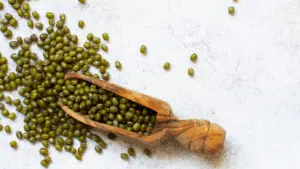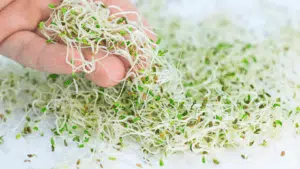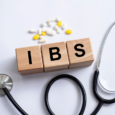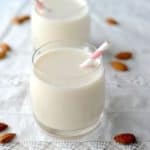Resveratrol could prove to be a safer alternative to hormone replacement therapy (HRT) in postmenopausal women and also help prevent breast cancer. To read about the issues with HRT and breast cancer, click here.
The study (published in the Journal of Nutritional Biochemistry) looked at phytoestrogens as possible candidates for providing safer HRT and chemoprevention of breast cancer due to its oestrogenic activity and high antitumour activity. Resveratrol came out tops.
Phytoestrogens are natural plant substances found in alfalfa sprouts and soy and mung beans and is also a property of resveratrol – they exert weak oestrogen-like activity.
HRT, used for the treatment of menopausal symptoms, constitutes the use of supplemental oestrogens, plus or minus progestin, but they are known to increase the risk of breast cancer. Studies over recent years have shown that soy and red clover are effective and offer much safer alternatives.
Population studies have shown that women with a high-soy diet generally have lower rates of breast cancer, probably due to the isoflavones they contain.
In the new study, a number of phytoestrogenic compounds were analysed for their effects on tumour cell growth, cell cycle and apoptosis (programmed cell death) and resveratrol gave better results than other compounds tested (genistein and glycitein from soy), repressing cell growth in breast cancer cells, but the mechanisms are not yet understood.
Resveratrol keeps gaining momentum as a beneficial health protectant to take – with evidence supporting healthy blood sugar levels, lower cardiovascular risk, improved immune function and more.

Concerned about testing your hormones? DUTCH comprehensive hormone testing here.
Source: Journal of Nutritional Biochemistry
Published online ahead of print: doi: 10.1016/j.jnutbio.2009.06.010
Title: Effects of diverse dietary phytoestrogens on cell growth, cell cycle and apoptosis in estrogen-receptor-positive breast cancer cells
Authors: T Sakamoto, H Horiguchi, E Oguma, F Kayama












